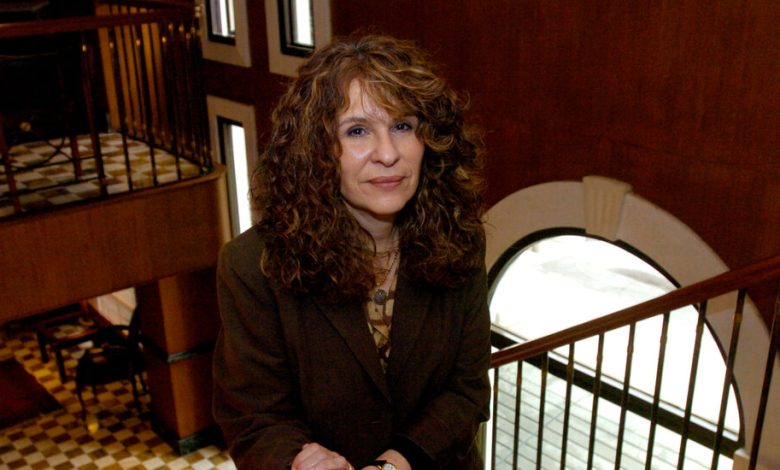Nicaragua Strips Citizenship From Hundreds Days After Prisoner Release

The government of Nicaragua has stripped more than 300 political opponents of their citizenship over the past week, in another sign that the country’s authoritarian president has no intention of easing his grip at home despite a deal, completed days earlier, that freed hundreds of political prisoners and sent them to the United States.
An appeals court justice announced the latest move, to revoke the citizenship of 94 people, on Wednesday, just after the government did the same to the 222 people who were sent to the United States last week.
Though Washington had welcomed last week’s prisoner release, officials in the Biden administration condemned the Nicaraguan government’s latest moves.
Secretary of State Antony J. Blinken, in a statement, called the stripping of citizenship “another step backward for the Nicaraguan people and a further step toward solidifying an autocratic regime.”
“Those who bravely defend democracy in Nicaragua will always be its citizens and patriots,” he added.
For years, President Daniel Ortega has methodically crushed dissent, cracking down violently on protesters, undermining democratic institutions and making sweeping arrests.
Stripping citizenship from hundreds of people appeared to be a new tactic of his government, experts said. The decisions were widely condemned, including by rights groups that said it could violate international law.
“It’s a political vendetta against any opposing voices,” said Jennie Lincoln, senior adviser on Latin America for the Carter Center. “This is a cleansing of opposition voices at all levels, from the political elite to the campesino in the pueblo.”
The decision also showed Mr. Ortega’s “absolute control of the judiciary and legislature,” said Tamara Taraciuk Broner, acting director for the Americas for Human Rights Watch. “This decision has no precedent in Latin American recent history — Augusto Pinochet, Chile’s bloody dictator, did it with nine people — and should be met with a strong reaction by democratic leaders in the region.”
The justice who announced the latest decision, Ernesto Rodriguez Mejía, declared that the people whose citizenship had been revoked were “traitors to the homeland.” He said they had been found guilty on charges of “conspiracy to undermine national integrity” and “spreading false news.” He said that their property had also been ordered seized.
The list of people affected included a well-known poet, Gioconda Belli; a high-profile journalist, Carlos Fernando Chamorro; a former Sandinista leader, Luis Carrión; and a prominent human rights activist, Vilma Núñez. Most, but not all, of the people affected appeared to be outside Nicaragua. Ms. Núñez, 85 is among those who remain.
“It’s not a total surprise, but it was worse than I thought they could do,” Ms. Belli said in a phone interview from Madrid, saying that the decision harmed everyone it affected.
“It keeps us from everything, and we have no legal recourse because Nicaragua is a lawless state,” she said. She said that people affected by the judge’s decision had been in communication with each other and the Spanish government, which had offered a path to citizenship for the prisoners released last week.
Ms. Belli added that she was fortunate because she also held Italian citizenship through her family. But many others, she said, had lost the means to travel, “to exist in many respects.”
The refugee agency for the United Nations called on Nicaragua “to respect its international obligations,” and said that it was “seriously concerned by the arbitrary deprivation of the Nicaraguan nationality of over 300 people.”
International law “prohibits the arbitrary deprivation of nationality including on racial, ethnic, religious or political grounds,” the agency said in a statement.
“The arbitrary deprivation of nationality for political reasons may amount to persecution,” William Spindler, a spokesman for the U.N. refugee agency in Latin America, added in an interview. “Which means that Nicaraguans who have been deprived of their nationality and do not have another one, could become stateless refugees.”
Becoming “stateless” can expose a person to a host of legal problems: a passport that no longer allows free travel across borders, the loss of benefits such as social security and, depending on the circumstances, the threat of detention or prosecution by the local authorities.
While nations such as Bahrain have stripped the citizenship of dozens of opposition activists, Nicaragua’s steps appeared to be larger than similar crackdowns around the world.
It was not immediately clear whether the Nicaraguan authorities would move to arrest the handful of people whose citizenship was revoked and were still believed to be in the country. And some of those who have left the country were reluctant to speak publicly, fearing reprisals against family members in Nicaragua.
Ms. Belli left the country in 2021 to visit her children in the United States, deciding not to return as Mr. Ortega cracked down. She said she worried especially about the fate of Ms. Núñez and other activists in Nicaragua.
“It’s very worrisome,” she said. “In Nicaragua, it seems every day you hear of something worse going on.”
But she added that the government’s citizenship decree did not take away her love of her country. “I don’t feel that I have lost my nationality,” she said. “I don’t feel that’s an issue for me — I will be Nicaraguan until the day I die.”
Frances Robles contributed reporting.
